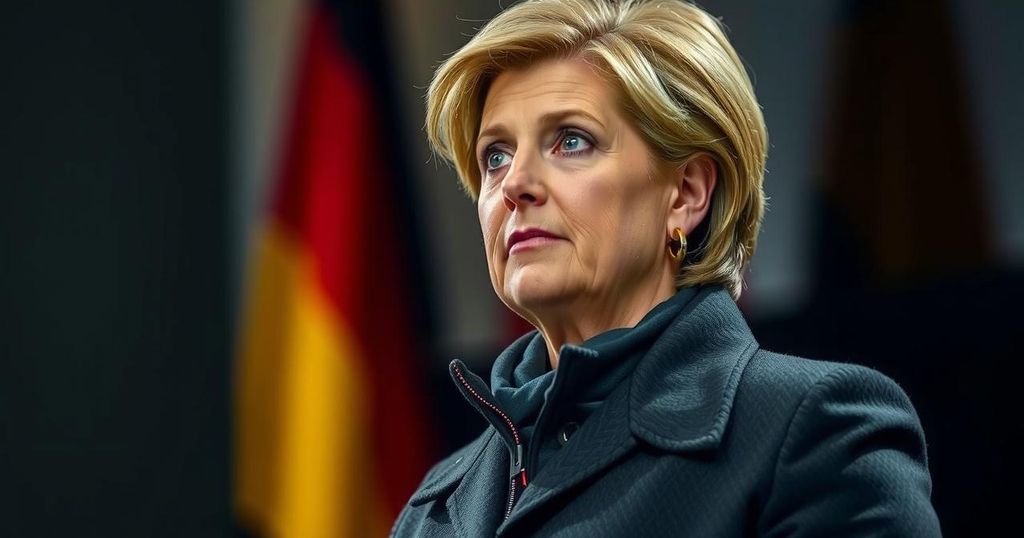Key Candidates for Germany’s 2025 Chancellor Election Revealed

Germany’s political parties have nominated candidates for the upcoming snap elections on February 23, 2025. Key figures include Olaf Scholz (SPD), Friedrich Merz (CDU), Robert Habeck (Greens), Alice Weidel (AfD), Christian Lindner (FDP), Sahra Wagenknecht (BSW), and Jan van Aken (Left Party). Each candidate brings unique backgrounds and policies, reflecting a wide spectrum of political ideologies in a vital election.
As Germany approaches a snap election on February 23, 2025, the major political parties have nominated their leading candidates for the role of chancellor. Each individual’s background and political ideologies offer a varied landscape for voters to consider. The key figures include Olaf Scholz of the Social Democrats, Friedrich Merz from the Christian Democrats, Robert Habeck of the Greens, Alice Weidel representing the far-right Alternative for Germany, Christian Lindner of the Free Democrats, Sahra Wagenknecht from the Left Party, and Jan van Aken of the Left Party.
Olaf Scholz, born in 1958, represents the Social Democrats and has held numerous government roles, including chancellor. While he is recognized as a pragmatic leader, he struggles with perceptions of arrogance and currently enjoys low public approval. Friedrich Merz, born in 1955, leads the Christian Democrats. Known for his conservative Catholic values and extensive experience in finance and politics, he is the oldest candidate in over fifty years.
Robert Habeck of the Greens, born in 1969, is distinguished by his relatable demeanor and willingness to accept mistakes, contributing to effective communication of government policies. Alice Weidel, born in 1979, co-chairs the Alternative for Germany (AfD) and is noted for her provocative stances and strong anti-immigrant rhetoric, making her a prominent figure of the far-right. Meanwhile, Christian Lindner, also born in 1979, symbolizes the Free Democrats and is recognized as a social media-savvy figure who maintains a strong leadership presence.
Sahra Wagenknecht, born in 1969, leads the BSW and is adept in populist rhetoric while holding conservative social and left-leaning economic beliefs against immigration. Jan van Aken, born in 1961, holds a biology doctorate and combines his scientific background with a commitment to the Left Party, showcasing a diverse set of candidates ahead of the upcoming elections.
This lineup reflects a broad spectrum of political ideologies, each candidate representing distinct platforms and policies, thereby ensuring a captivating electoral process in the coming months.
Germany is preparing for a bankable political event as the nation gears up for a snap parliamentary election scheduled for February 23, 2025. This early election comes amid a tumultuous political climate, prompting parties to present their strongest leaders in hopes of shaping the country’s future direction. The present candidates signify a mixture of traditional and contemporary values, highlighting the electorate’s diverse political landscape, where issues such as economic policy, immigration, and environmental concerns are at the forefront of public discourse.
As the German electorate readsies itself for the snap elections in February 2025, it will be presented with a varied slate of candidates each representing their respective parties’ ideologies. From Scholz’s pragmatic governance to Weidel’s provocative approaches, the campaign landscape promises to be highly competitive. Voter engagement will be critical as these candidates engage with pressing national issues and seek to resonate with a diverse base of constituents.
Original Source: www.dw.com








